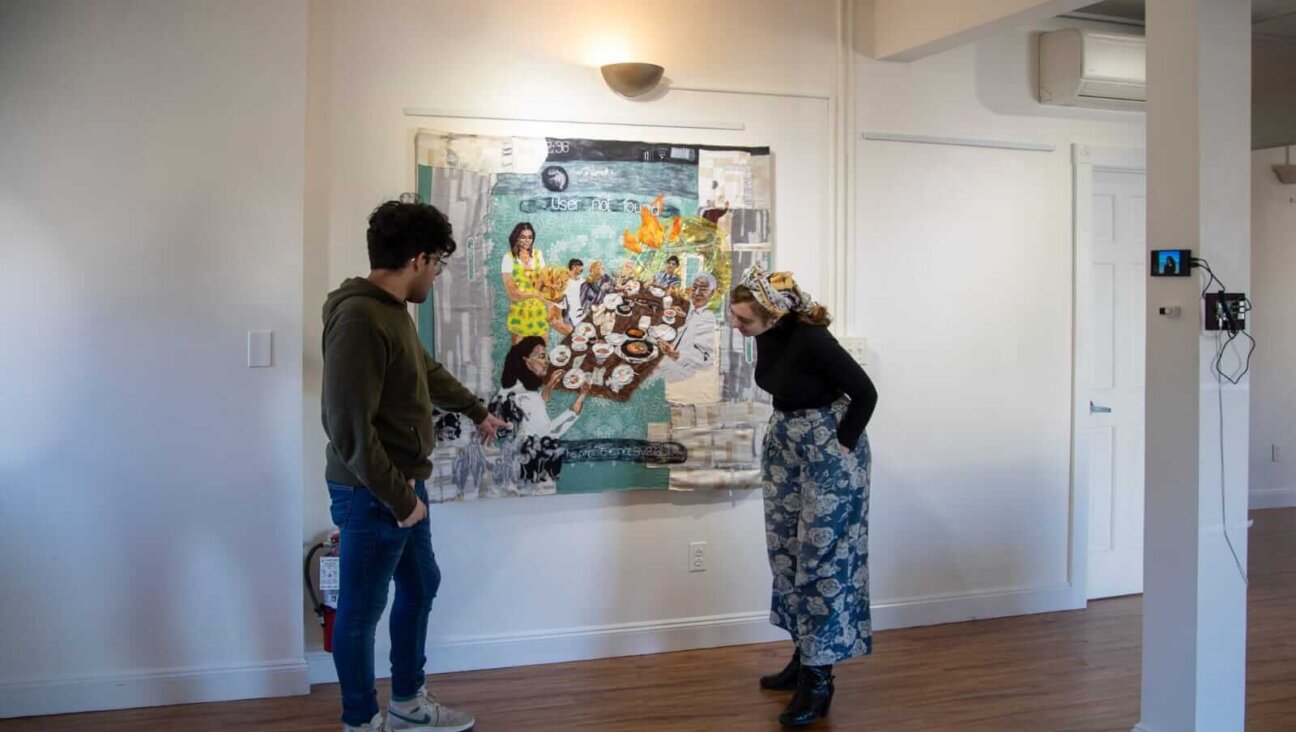On Serving Justice for Hair-raising Racism
The current controversy swirling around shock-jock Don Imus’s crude description of the Rutgers University women’s basketball players as “nappy-headed hos” recalls an incident from another time when tightly curled hair — this time on the head of a Jewish music professor — played a dramatic, though ultimately minor, role in the struggle against segregation.
This is how I remember it: For many years, Gegner’s and Squire’s barbershops in Yellow Springs, Ohio, were notorious for their refusal to cut black men’s hair. Each proprietor insisted that he hadn’t the skill or training to do so.
In a community known for its outspoken liberalism, the adamant refusal of these two barbershops to serve black clients roiled the town. In 1960, the Antioch College chapter of the National Association for the Advancement of Colored People — known with a certain cynical pridefulness as the largest NAACP chapter on a predominantly white campus — decided to initiate a test case against both businesses. I was chapter president at the time.
In a coordinated plan, black students accompanied by white colleagues entered each shop and demanded haircuts. The atmosphere in both small places was tense, ominous. Neither side seemed to know what to expect.
At Squire’s, we were surprised when the owner nervously complied. Almost like teenagers fumbling awkwardly on a date, the student and the barber quietly talked their way uneasily through the process. At bottom, the fact of the haircut was more important than its quality. From that day forward, Squire’s was no longer an issue.
Lewis Gegner, however, once again refused to cut a black man’s hair. “Son,” he said, “you know I don’t cut Negro hair.”
With the assistance of the American Civil Liberties Union, Gegner was charged under an Ohio public accommodations statute for failure to comply with a request for service. The trial in nearby Xenia was seriocomic: TV’s “Night Court” meets C-SPAN.
For those of us from the Antioch NAACP, the proceedings were profoundly important. Yellow Springs, at least in our minds, was now a center in the still-nascent struggle for civil rights in America, and this case was most assuredly a litmus test about the effective use of the law to address racial injustice in society.
You can imagine our outrage when the defense attorney kept insinuating that the ACLU represented a pinko, un-American cabal maliciously striving to deprive poor Lewis Gegner, a hardworking and independent American, of his livelihood. Even worse, counsel insisted on referring to that august organization as the UCLA. (A rabid Ohio State fan with a hatred for Bruin basketball, I could only wonder?)
At first, we thought counsel was merely stupid. Then we realized that he was cleverly appealing to the nativist, anti-communist sentiments of the jury. Remember, this was 1960. We writhed.
We were incensed, as well, when the defense called its star witness, the proprietor of the local barbershop that catered to the Yellow Springs black community. Derisively, as if it were as clear as the nose on your face, he harrumphed that of course black hair is different, and it takes a special talent — his, as it so happened — to cut it properly. How cynical, we thought, to betray one’s own community just to make a living.
The defense rested.
Things clearly weren’t going well for the prosecution. Then, in a Perry Mason moment, the state called a professor named David Epstein to the stand. Wearing a suit and tie, Epstein was duly sworn in. In brief testimony, when asked where he got his previous two haircuts, Epstein answered quietly, “Gegner’s.”
“Would you please show the jury your hair,” the prosecuting attorney requested. Epstein slowly bowed his head toward the jury box, revealing a full head of tight, dark, kinky curls. You could hear a pin drop.
After the guilty verdict was announced, a number of jury members said that it was Epstein’s hair that convinced them Gegner had, in fact, discriminated against blacks at his barbershop.
I wish I could say that the case ended there, but it didn’t. As in the Scopes “Monkey Trial” of 1925, Gegner, though found guilty, was reportedly fined only $1 and went back to his discriminatory ways.
Yet where the law fell short, civil disobedience finally made a difference. I had already graduated when, in 1964, hundreds of Antioch students and others held a mass protest and sit-in in front of Gegner’s barbershop. Though many were arrested, Gegner finally hung up his for-whites-only scissors and closed his doors forever.
Lawrence Rubin is writing a book on the black-Jewish encounter in American literature.
















